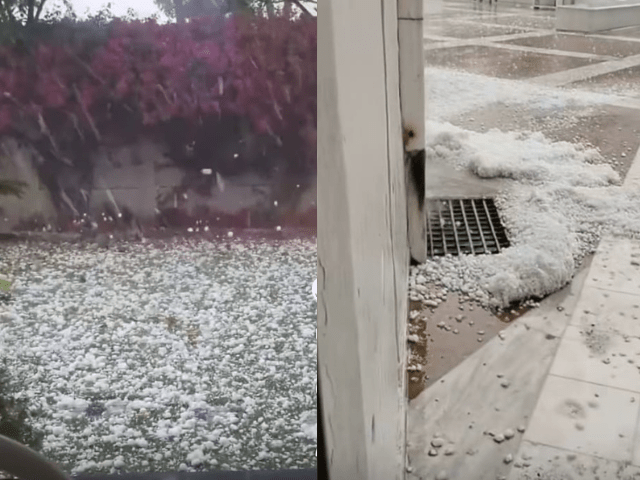Islamabad:
The National Disaster Management Authority (NDMA) predicts on Thursday that heavy rains, strong wind storms, thunderstorms and isolated walnut storms on Friday (today) and on Saturday nights in several parts of the country, including Rawalpindi and Islamabad.
These severe climatic conditions could interrupt infrastructure, transport and agricultural activities, said a climate notice issued by the NDMA National Emergency Operation Center (NEOC).
The NEOC issued the notice for the Potohar region, including Islamabad and Rawalpindi, Upper Punjab: Atock, Chakwal, Gujrat and Jhelum, and Central Punjab – Faisalabad, Hafizabad, Jhang, Khushab, Mianwali, Lahore, Narowal, Sahiwal, Sargodha, Sargodha, and Shheikhup.
According to the notice, strong winds and heavy rains can uproot trees, which can cause temporary power cuts. Wind storms, dust storms and hail storms could damage vulnerable structures, roofs, vehicles and electric lines.
He said that hail storms represent a threat to outdoor crops and facilities, particularly those with glass surfaces. Reduced visibility due to rain and dust can increase the risk of traffic accidents. Residents are urged to take precautions, ensure loose objects and avoid unnecessary trips during severe climate.
The NDMA has urged residents to stay informed by downloading the official Alert mobile application of Pak NDMA disaster for real -time updates.
A guide said that all citizens, particularly tourists and residents in the affected areas, should closely monitor the weather through official channels. Travelers are strongly recommended to verify the road conditions before the exit and postpone non -essential trips during periods of intense climatic activity.
“Those residing in or near areas prone to landslides must exercise greater surveillance and strictly comply with all local security directives.” The public is reminded that timely access to verified information and compliance with official warnings are critical for personal security and community protection during severe climatic events, “he said.




